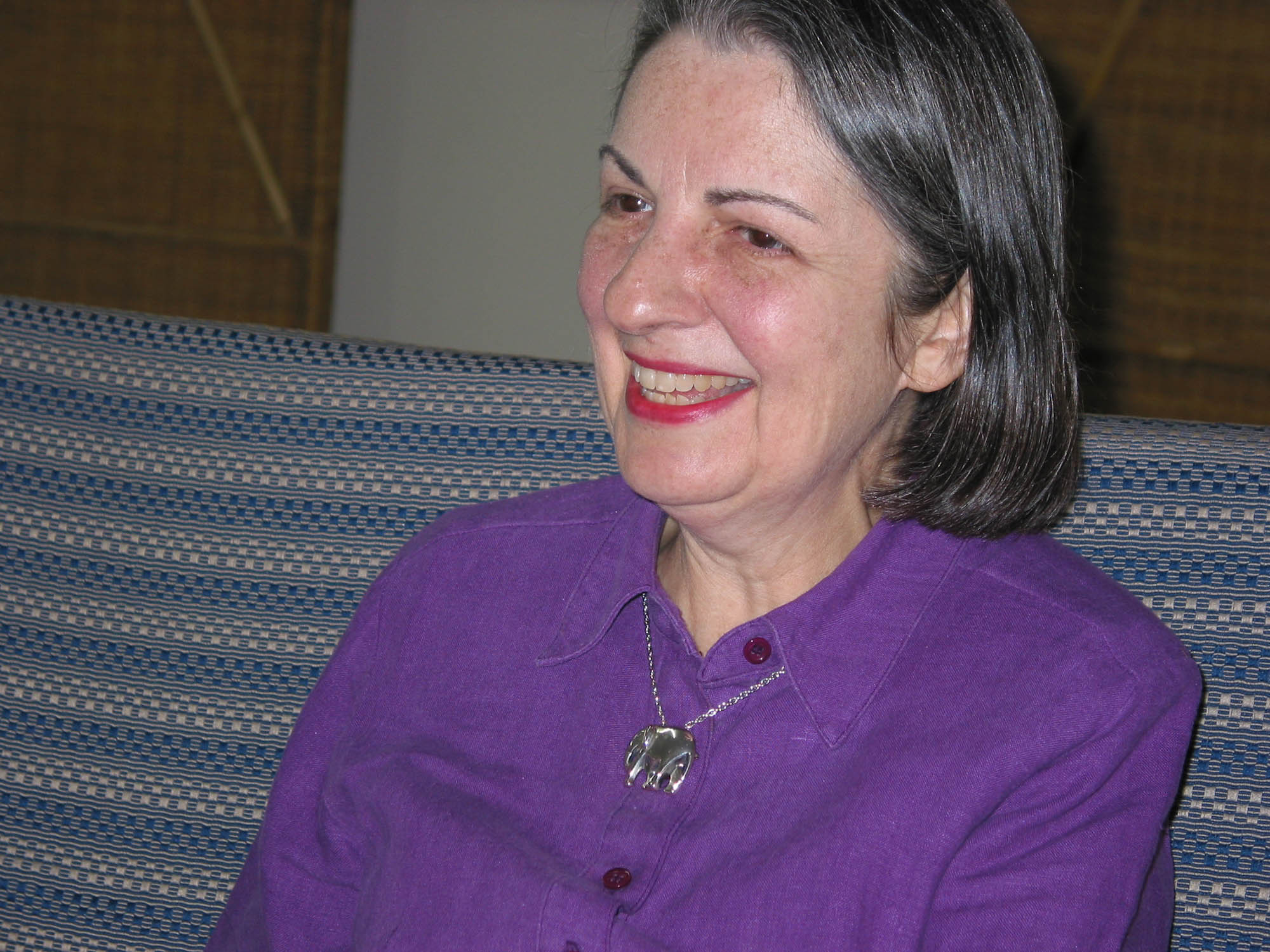
DALLAS (BP)–Some call her the Mother Teresa of Bangalore, but at one time some called her a criminal over labor disputes at Bangalore Baptist Hospital.
She is a celebrated, sought-after surgeon who befriended local officials in her area, but later the Indian government denied her license to practice medicine and, at times, delayed or denied her residential visas.
Colleagues and friends know her as disciplined, strict and forthright but also as warm, affectionate and not shy at all to express her faith in Jesus Christ.
Rebekah Naylor first arrived in India in 1974 as a medical missionary with the Southern Baptist Foreign Mission Board (now International Mission Board). She served as a surgeon at Bangalore Baptist Hospital and became chief of medical staff four years later.
In 1984, she became administrator and medical superintendent. She founded the adjoining nursing school, which was named after her in 1995, and became a consultant on special assignment with the International Mission Board in 1999. During her tenure at the hospital, she started a choir, taught Bible studies, led chapels, supervised building projects, and created a strategy to reach India through the hospital’s ministry.
Since returning to the United States in 2002 to care for her ailing mother, Naylor has been on active staff as attending surgeon at the University of Texas Southwestern Medical Center in Dallas. Last year, Camille Lee Hornbeck released a biography about her titled “Rebekah Ann Naylor, M.D.: Missionary Surgeon in Changing Times.”
Although she officially retired from the International Mission Board in February, Naylor she plans to have a continuing role in the ministry of the hospital in which she has invested nearly 35 years.
In the interview that follows, Naylor reflected on her years on the mission field and discussed what retirement will look like for her.
CONTINUING IN MINISTRY
Q: So what is next?
REBEKAH NAYLOR: I will continue in my faculty position at UT Southwestern for some more time — not sure how long. As long as I am productive and still enjoy it, I will continue. I am becoming more involved in some global health initiatives in the university.
My relationship with Bangalore Baptist Hospital will probably change very little in the near future. I will continue to visit every few months. I will be involved in teaching, pastoral care, fundraising and any administrative projects they may ask me to do.
The IMB has asked for a few more months to continue consulting on medical strategies to help us access peoples in south Asia. A lot has happened with this in the last 18 months, and more will happen I am sure.
I would anticipate that I will still do some speaking in churches to support missions. Oklahoma Baptist University has asked me to teach a course on India in their missions department this fall. It would be three concentrated weekends with 12 classroom hours per weekend.
Q: Your biography mentions that some of your hobbies are watching sports, doing needlework and playing piano. How will you spend your retirement in nurturing your hobbies or cultivating new ones?
NAYLOR: I definitely want to spend time at the piano for my own pleasure. I have not been able to do that in a while. Maybe I would get back into some needlework as that has been put aside for years. I have lots of books I want to read. And I look forward to some pleasure travel both in the U.S. and overseas.
Q: You have very impressive parents. Your father, Robert Naylor, served pastorates in Oklahoma, Arkansas, South Carolina and Texas before becoming president of Southwestern Baptist Theological Seminary in Fort Worth, Texas. [He died in 1999.] Your mother, Goldia, turned 100 in March. How is she doing, and what does she mean to you at this point in your life?
NAYLOR: Mother is mentally alert but has limited physical strength and mobility. She remains in our home, and I am the primary caregiver with five wonderful ladies who cover nights and work days. Mother is still my friend, encourager and inspiration. I know that she continues to pray for me in whatever I undertake. She still has a very determined spirit that is a model for me even now.
LIVING BICULTURALLY
Q: “Simply adjust” became one of your mottos in India. What meaning does that have for you now?
NAYLOR: I believe “simply adjust” will stay applicable forever. When I cannot do the things I want to do or had planned — such as my recent trip to India that was cancelled — I need to simply adjust. I am still very bicultural and do things that are more Indian than American. So in that, also I must simply adjust. Changes go on around us — political, IMB, life situations, stages of life. Simply adjust.
Q: What are some things that you do more Indian than American?
NAYLOR: A few months ago, I was driving a rental car — my first time to do that — in a city new to me and was trying to merge onto an interstate. The oncoming car in the right lane kept blinking his lights. Finally, I was on the shoulder and there was nowhere else to go. The friend with me was at first puzzled and concerned until I said that I didn’t know why he kept blinking his lights when I was doing my utmost to get out of his way. She gently told me that he was telling me to come in — not get out of his way. I only knew that in India that meant to move aside.
A friend told me that I carefully eat my muffin or roll with only my right hand. I carefully pull it apart with just the one hand like we do in India. And once I was in a home here with Westerners — friends fortunately — who had cooked a wonderful Indian meal. I was happily eating away until halfway through I realized that I was eating with my hands and had not touched my fork. They were quite amused and I was quite embarrassed.
SEEING GOD AT WORK
Q: What is God doing at Bangalore Baptist Hospital and in south Asia now that is fresh and new in your mind?
NAYLOR: Two or three things stand out. Most exciting is the great response to the Gospel that we are seeing in south Asia. I never dreamed that I would get to see this, and I feel so privileged. Second, I am encouraged by the number of workers engaging the peoples of south Asia. And I am so thrilled and gratified when I see strong national leadership carrying on the ministries in a great way.
Q: Bangalore Baptist Hospital has a special relationship with Christian Medical College in Vellore, India, and the Indian Baptist Society. Can you explain how they are all working together?
NAYLOR: Since 1989, Christian Medical College has managed the hospital through a tripartite agreement drafted by the IMB, the hospital and the college. The hospital retains its autonomy, vision and mission. The IMB still has participation through a representative on the governing board of the hospital, any personnel assigned to it and support of the pastoral care department of the hospital.
The college has six of seven members of the governing board and decides overall policy regarding finance, personnel and other areas. The college also has been great to provide consultants both in administrative and support areas, as well as professional. It has been the chief guide in development of the many educational programs at the hospital.
The Indian Baptist Society was the parent legal entity representing the IMB in India. In 1987, the hospital became a separate legal entity known as the Bangalore Baptist Hospital Society. The Indian Baptist Society has given over all of the property for the hospital society to use and manage. Both have a very strong relationship in our mission work. The methodologies and training are common to both.
RECALLING THE EARLY YEARS
Q: Think back to your first day in India in 1974. What sticks with you still about that day?
NAYLOR: I was stuck for two days alone in Madras, which is now called Chennai. I guess the best word to summarize the feelings was fear. That and feeling so alone and out of touch was quite an introduction. It took more than four hours just to call Bangalore. There was no way to communicate. The trains were on strike. The tiny puddle-jumper planes that left twice a day were full. Welcome to India.
Q: Strange question, but what was the weirdest surgery you did in India?
NAYLOR: I really don’t remember. It is not weird in India, but I [didn’t like working on] patients with a perforation [hole] in the intestine and round worms, which are long, white and fat, running free in the abdomen. Those are internal critters.
Q: You have never married. How did you deal with your singleness in a culture where marriage and family are ultra-high priorities?
NAYLOR: Though loneliness had to be faced, my singleness allowed me to give myself totally to the work. This is not to say that I did not do things for relaxation, because I did. My extended family was made up of my national colleagues and friends. Even going alone to professional meetings created a stir. People wondered if I drove myself. But I just learned to accept their curiosity about this single female American. I used my home as my social place and often invited friends to eat.
Q: For a few years, you were the only FMB missionary serving in a country approaching 1 billion people. What was that like, and how is it different now in your eyes?
NAYLOR: You miss being with people of your own culture. An example is that Indians do not touch and they do not hug like we do. I missed physical touch. I focused on my work and the individuals whom I helped physically and spiritually to be whole. If I thought about all of India and me being one person, it would have been overwhelming. I also claimed God’s promise that His resources are enough. He has a plan for a way that all the peoples of India could hear about Jesus.
HONORING THE CALL
Q: You are a breast cancer survivor. How is your health and how has this impacted your life, ministry and approach to medicine?
NAYLOR: My disease was at a very early stage, and I was fortunate. Nonetheless, the “cancer” word really gets your attention. Though cure is expected, there is that small percent that might not be — even with early-stage disease. So I suppose that somewhere in my mind will be that question and a little apprehension before each checkup.
Certainly I learned much about being a patient, and this makes me more caring and sensitive as a doctor. I also was reminded about the need for good stewardship in every aspect of my life. And I have been able to help several friends and colleagues facing similar problems, not as their doctor but as a friend who has walked that way before.
Q: You were a surgeon, administrator, anatomy teacher, mission leader, piano player and choir leader in India. Now you mentor medical students in addition to representing south Asia around the nation and taking care of your mother. What time management secrets do you have?
NAYLOR: I am a very disciplined person and impose a fair amount of self-discipline on myself. I try to organize my work. I really learned how to do that as a surgery resident long ago with so much to do, working 120-hour weeks and needing to know what was urgent.
I set priorities on what I have to do and then reprioritize as the circumstances require. I multitask. I do not waste time. I try to maintain regular eating habits and sleeping habits, which is harder with night call, but this helps efficiency so much if you are in good physical condition. I learned long ago how to relax and enjoy things even if the time was short.
Q: Many know you as a very strong, disciplined woman. What do you consider your weaknesses to be?
NAYLOR: Your strengths can sometimes be weaknesses. I think sometimes I have imposed the same standards on others that I set for myself, which was not fair or reasonable. I feel that rules and policies should be enforced and firm, and sometimes I may not have balanced that correct view with sensitivity to the people involved.
Q: Your biography lists the myriads of successes and accomplishments you have had, but also many of the trials. You were burned in effigy over labor union disputes. You went to court over those allegations and were cleared. India denied your medical license. Visa problems stretched out for years. There were frequent power, water, furniture, rodent, snake and relational issues. You had many days where many might have considered quitting. How did you keep from jumping on a plane and washing your hands of this place during those times?
NAYLOR: The answer to this lies entirely in the call, in God’s clear direction, about what I was to do. Absolutely there were times that I not only wanted to quit, but I actually thought maybe God was directing me to do so. But as I trusted Him completely with my life and future, He always gave direction.
Back in 1991, with no license for many weeks and unsure what work I was to do, I actually came home on vacation and went for a job interview at UT Southwestern. In the middle of the interview, it was so clear to me that I was supposed to be in India. I told the man in the middle of it that I was no longer interested in a job.
I also learned that I was accountable for each day — for the opportunities and responsibilities and work of that day. I did not know what the future was, how long I would be in India, or what was going to happen to my parents in America. I learned just to leave all that with God and remember my daily accountability for what He placed there for me to do. Staying grounded in Bible study and prayer was surely an essential part of this.
SPEAKING FROM EXPERIENCE
Q: What advice do you have for — or what do you have to say to — the following as you retire? Bangalore Baptist Hospital?
NAYLOR: Keep the spiritual ministry and purpose of the hospital a priority. With every expansion and new service, ask how that can be used to introduce more people to Jesus.
Q: India?
NAYLOR: It has been a privilege to call India my second home. That is still where I feel most at home. I pray that India will ensure freedom to its peoples to choose their religion and to worship without fear.
Q: Personnel serving in south Asia?
NAYLOR: Love the people, work tirelessly, avoid laziness, pray much. Be ready to give an answer in season and out of season to anyone and everyone. Allow God’s miraculous power to work through you.
Q: The International Mission Board?
NAYLOR: I am grateful for the good financial and physical support as well as prayer support and equipping that I have received since 1973 [her year of appointment]. Prayer must be central as we send more workers and as we seek more ways to “impact lostness.” I look forward to continued participation in our Southern Baptist IMB mission effort in every way possible.
Q: The Southern Baptist Convention and its churches?
NAYLOR: I mainly say thank you for letting me be your representative in India all these years. I challenge our churches to renew emphasis on missions done cooperatively, which has been so effective for many years. I challenge our churches to renew emphasis on mission education, which is crucial if God is going to call young people to go.
–30–
*Name changed for security reasons. Ethan Leyton is an International Mission Board missionary serving in southern Asia as a music and media strategist.














